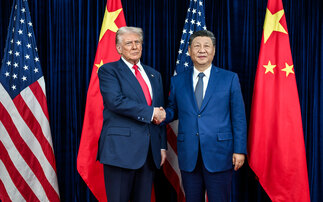China's economic slowdown is structural and set to accelerate over the next decade, writes Keith Balmer, product specialist at BMO Global Asset Management.
Thinking outside the box
However, kickstarting productivity growth requires more than just funding. It requires human capital - something that China lacks in comparison to its global peers.
Through human capital comes innovation, which paves the way for disruption, risk-taking and even failure - all essential for such an ambitious project as Made in China 2025, yet anathema to the CCP. Innovation of this kind requires creativity, and creativity requires freedom, which is limited in China.
The CCP is involved across all industries, which generates massive conflicts of interest within this industrial project - would the government willfully disrupt and destroy itself? We think not.
Five opportunities in China after 'perfect storm' in 2018
The Chinese private sector also looks unfit for achieving technological dominance, contrary to popular belief.
On the surface, the number of patents filed in China points towards a very inventive society - more are filed there than anywhere else in the world - but, crucially, these are almost entirely domestic.
The proportion of those filed abroad is actually very low, suggesting that this is not representative of true innovation at all.
Additionally, research and development spending is significantly low - only 5% of Chinese firms spend money here, and it comprises 2% of the country's overall GDP, behind that of its global peers also deemed to be at the forefront of innovation.
If Made in China 2025 does succeed in catapulting the country out of the middle-income trap, the CCP will become the first repressive autocracy to do so.
We certainly recognise the factors that have led people to conclude that China can achieve dominance in technology.
However, we believe taking a closer look reveals that China's low level of human capital will be detrimental to this project.












